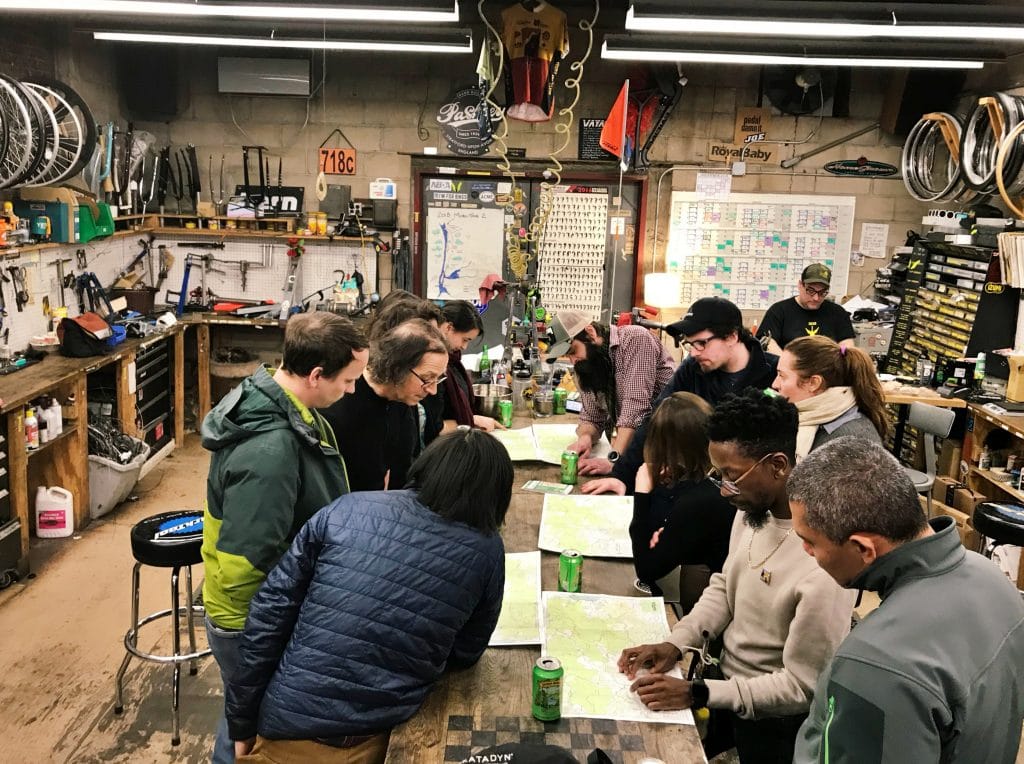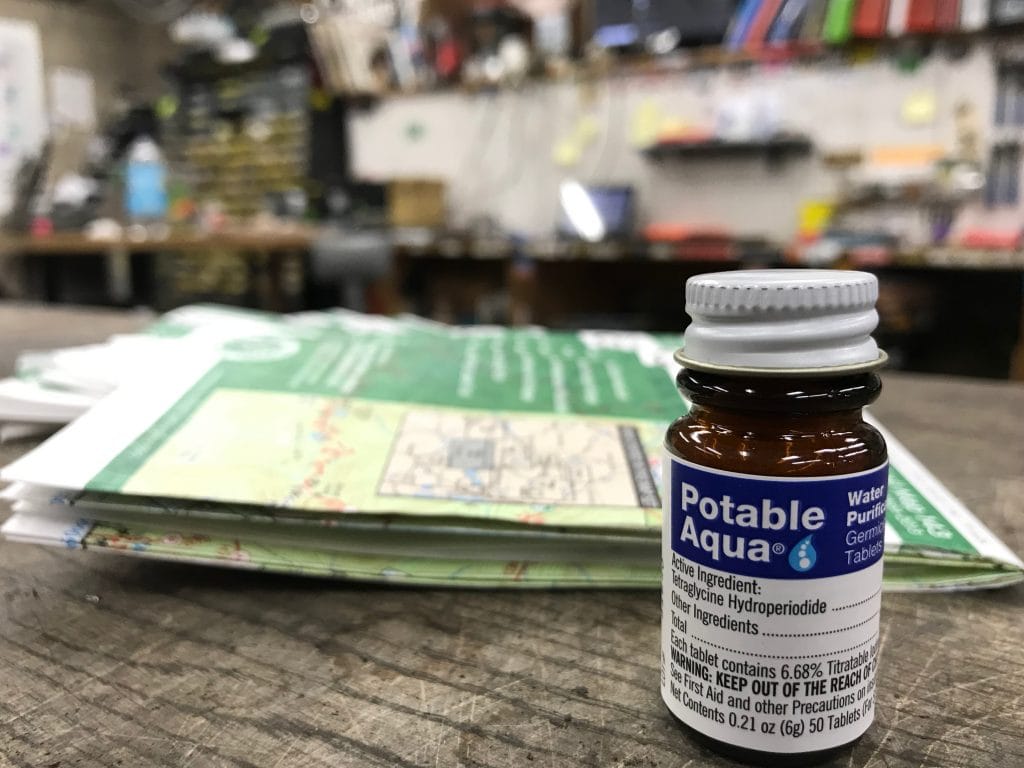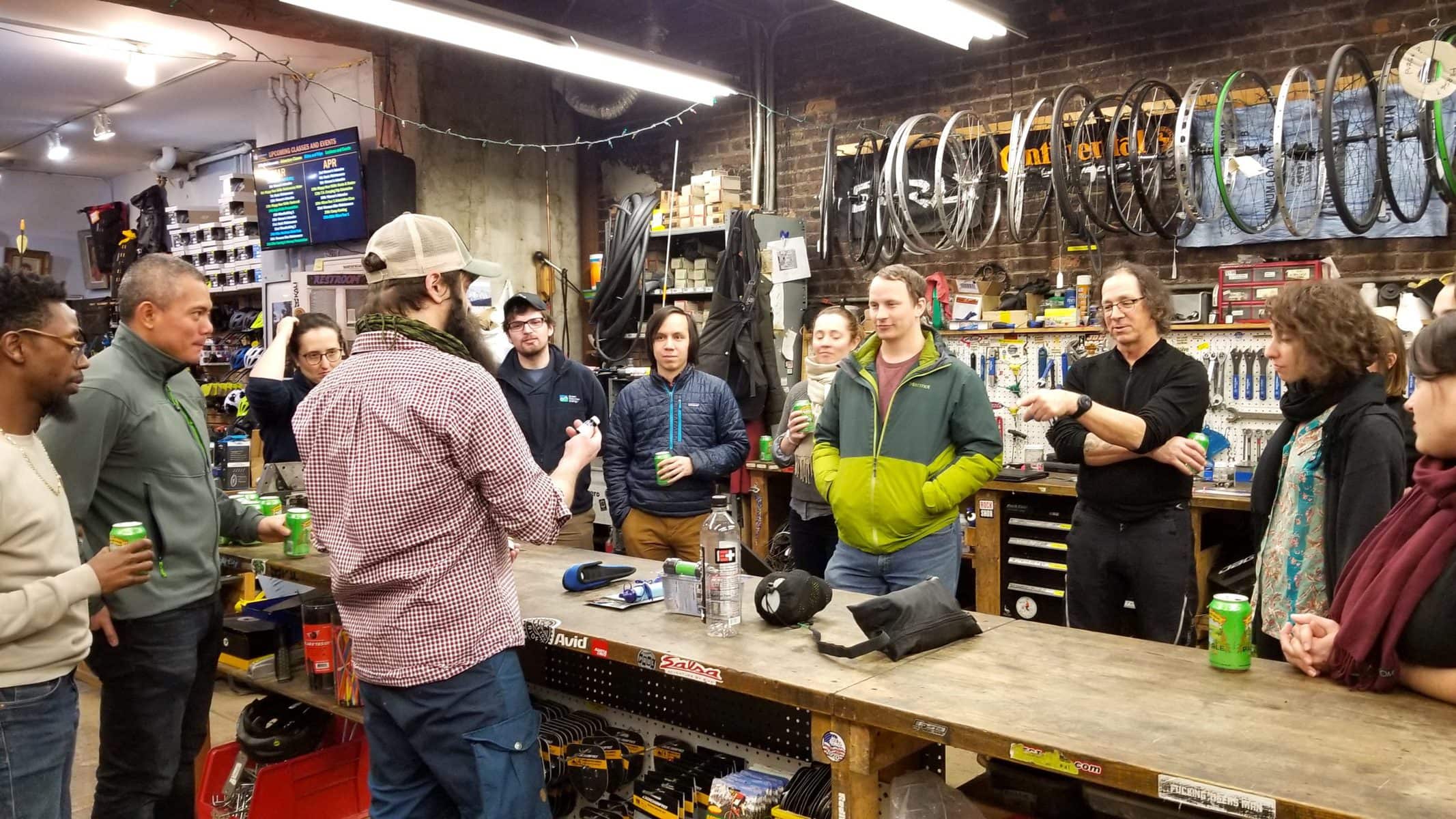This past Wednesday, we gathered at the Mighty Hatchet in Brooklyn to talk about staying hydrated including not only how but the why and where.
The night was led by local guide and business owner Gregory Wilson of Freestone Expeditions.
1. Staying Hydrated
Greg started off with tips to stay hydrated when in the backcountry including:
- Remember that we lose water in the summer AND in the winter. Just because you’re not sweating doesn’t mean you’re not dehydrated.
- Being thirsty is a late indicator of dehydration. Make sure you’re always drinking water and follow the three C’s of peeing: constant, clear, copious.
- In the winter, make sure your bottle or straw doesn’t freeze. Insulate with a wool sock and flip your bottle upside down while you’re hiking as water freezes starting at the top.
2. Smart Trip Planning

Before even diving into the how of water in the backcountry, we pulled out our New York-New Jersey Trail Conference Map Sets to figure out where. Luckily for us in the Northeast, water is abundant but we still worked together to figure out various scenarios of trips and how we’d plan for water. Greg shared tips on everything from finding vernal pools to tapping trees in survival scenarios.
3. Filter and Purify Water

And finally, we reach the how to make your water potable in the backcountry. First off, Greg highlighted the three main dangers we would be targeting:
- bacteria
- protozoa
- virus
We then went through the pros and cons of each method, tested them out ourselves, and even did a water taste test (iodine really isn’t that bad!) Here are a few notes:
Filtration
We started with the filters, which are great for getting rid of bacteria and avoiding giardia.
Platypus GravityWorks Filter System
Great for: Large groups, easy
Not great for: places without well sized water sources or immediate water
Great for: General all around use in the backcountry
Not great for: large groups, weight
Sawyer Mini Water Filter
Great for: Ease of use, price, size
Not great for: groups, nalgene or wide-mouthed water bottles
Great for: speed, weight, price
Not great for: groups or sharing in general
Purification
Purification is essential when traveling to places with a risk of virus – such as going abroad.
Great for: ease of use
Not great for: weight (especially because you have to bring batteries), silty water (needs to be clear to work)
Great for: size, weight, price
Not great for: taste, pregnant women or people with thyroid issues
Great for: size, weight, price
Not great for: long term use
Header photo by Joe Nocella

